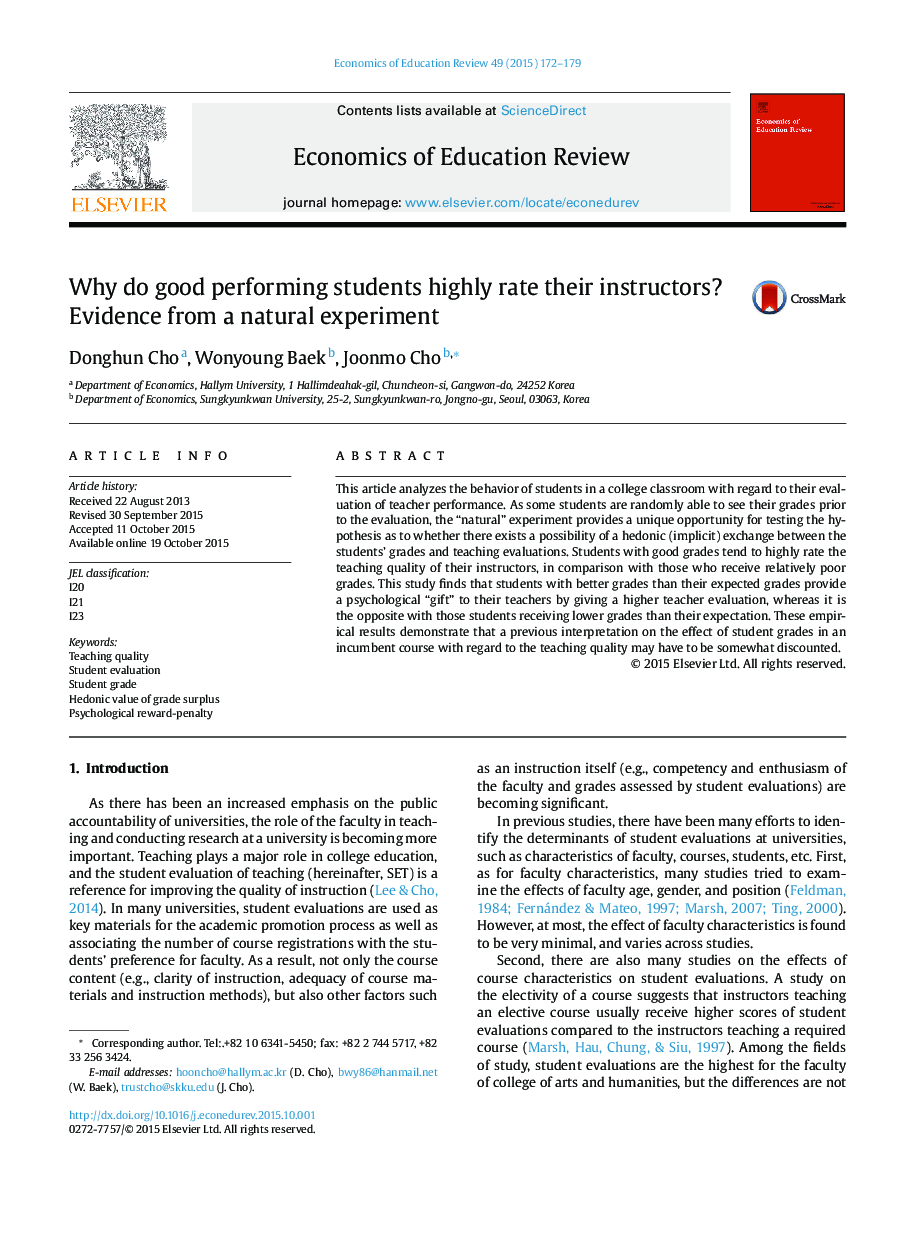| Article ID | Journal | Published Year | Pages | File Type |
|---|---|---|---|---|
| 354312 | Economics of Education Review | 2015 | 8 Pages |
Highlight•With the unique data set created by a natural experiment, this study empirically test whether there can be a significant bias in student evaluations of teaching.•The trade-off between excess gain and teacher evaluation scores takes place in the form of students’ rewarding faculty with high teaching evaluation scores.•The estimated size of the positive influence of the students’ grades on the teaching quality in the previous studies may be biased.
This article analyzes the behavior of students in a college classroom with regard to their evaluation of teacher performance. As some students are randomly able to see their grades prior to the evaluation, the “natural” experiment provides a unique opportunity for testing the hypothesis as to whether there exists a possibility of a hedonic (implicit) exchange between the students’ grades and teaching evaluations. Students with good grades tend to highly rate the teaching quality of their instructors, in comparison with those who receive relatively poor grades. This study finds that students with better grades than their expected grades provide a psychological “gift” to their teachers by giving a higher teacher evaluation, whereas it is the opposite with those students receiving lower grades than their expectation. These empirical results demonstrate that a previous interpretation on the effect of student grades in an incumbent course with regard to the teaching quality may have to be somewhat discounted.
